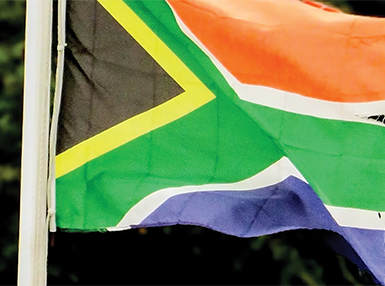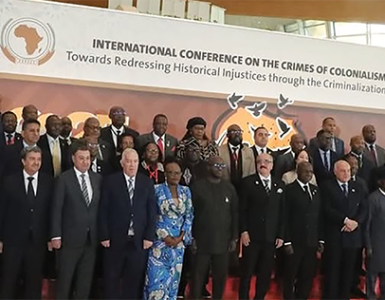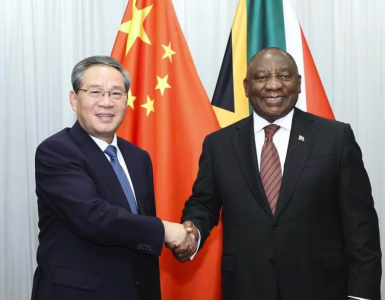COMPETING FORCES:Culture of everyone for himself reverses struggle gains
By Sandile Memela
It is 45 years after June 1976 and the children of the children of Soweto are increasingly growing aware that the fiery and prophetic fire and spirit of much vaunted revolution has faded.
The African National Congress has been in power for 27 years with its weakening hands on all the levers of State power since 1994.
Looking back at the last 45 years, the angry, defiant and self-sacrificing youths who were willing to confront the mightiest military state in the African continent have grown soft.
It comes with age. When you over 50 years you become soft around the waist and the frontal part of the brain.
The privileged with cushy government and private sector jobs are now the first to advise their angry, go-for-broke offspring to ‘cool it.’ They are impatient and dismissive of anything that threatens the stability of democracy. After all, they have learned that revolution is not an overnight thing. The disadvantaged who have failed to gain access to State power, resources and opportunities are fanning the fires. They have gained nothing.
This is the teaching of experience and history. The children of Soweto are now old, in their late 50s, 60s and 70s, now.
For the last 27 years they have moved out of the arena of conflict to bury Nelson Mandela, watch some former exiles turn into multi-millionaires, pursue idealistic economic policies, set new State priorities, understand the corruption of political power and want to secure the little they have achieved as individuals.
South Africa is not a society at war with itself or the world, now. The pursuit of violence, destruction of property and desire to kill is not what makes the now aged June 16 generation come alive. What is required from them now is not violent confrontation but to become part of the system they fought against. The aim is to bring about change in a peaceful manner that will leave the country united and intact. This country belongs to whites as much as blacks, including African and European migrants who come to settle, here.
For more than 20 years now, there has been an increase in conflict between the government and the people rising to demand better service delivery.
Ironically, this has resulted in self-inflicted pain and misery in black lives. Many of the townships have, increasingly, become battle areas leaving homes, public buildings burnt and dead bodies. But the last 27 years have, unavoidably, changed the behaviour and attitude of the youth of June 1976 now beyond middle age. It is struggle fatigue. Or the desire to make money.
It is idiocy to assume that people who have been through more than four ‘revolutions,’ if you can call them that – 1960, 1976, 1985 and 1990, for instance – would not be battle scarred and weary. There are some over 50-year olds in Azapo or the PAC, for example, who want to pretend that they still have the passion to breath fire out of their mouths and have not changed.
They entertain the illusion of being lifelong radical revolutionaries. Everything has its time and purpose. In fact, the rhetorical revolutionaries find status and shallow self-fulfilment from rousing talk radical rhetoric over hard drinks. This is all an adventure to bring back a dead past. But for many children of Soweto, there is no going back to the past. 1976 is a history.
The best lesson that can be learned from it is not to repeat its mistakes, if any. But it is difficult for South African activists to learn from history.
In the next 9 years we are not going to reach the National Development Plan target of transforming the most unequal society in the world by 2030.
If truth be said, we, the activists and children of 1976, have failed ourselves and our historical role. South Africa would have been turned into the perfect human experiment for the creative adventure of nation building and social cohesion.
But now we must use whatever time and energy we have to promote democratic existentialism that promotes a spirit of self-determination, responsibility and accountability where people help themselves, especially at individual and family level. Every citizen, woman and child must be encouraged to be an agent that spends time to self-transformation through focus, discipline and hard work to change their own material conditions.
The youthful search for meaning through violence and self-indulgent destructive behaviour, especially in communities and inside the governing party, is not what will take black families where they need to be. Frankly, there is no black nation building agenda.
The idea of looking up to government is a pipe dream, until the people are able to hold people to account. But elected government officials are products of poverty, unemployment and inequality themselves.
So, nobody should be surprised they use their tenure in government to set themselves up for life. It is a question of survival in a dog eat dog society.
We must admit that June 1976 was a bridge to take us to a society where it will be possible to achieve success, whatever we mean by that.
Sadly, many realistic children of 1976 are cynical towards this dramatic explosion of deep rumbles of discontent and political infighting.
Most of them have learned that, as Oliver Tambo warned, fighting for freedom is easiest compared to running Africa’s most sophisticated economy.
But the struggle has reached a dead end as the children of 1976 have become part of the system that they fought against. In fact, the 1976 is the Establishment, now.
* Author, journalist and civil servant Sandile Memela writes in his own personal capacity.






























